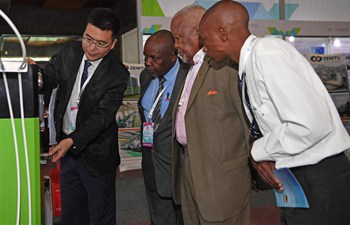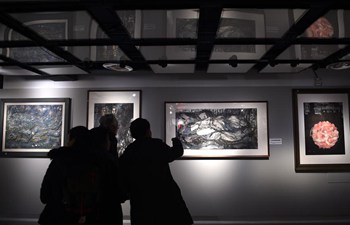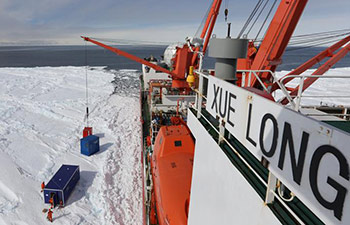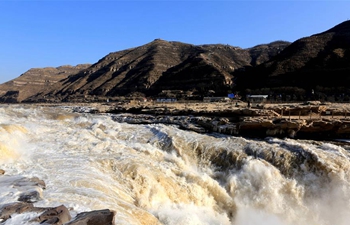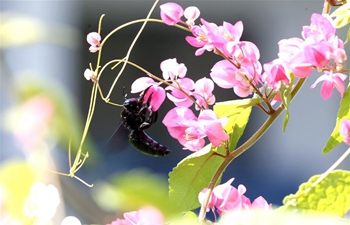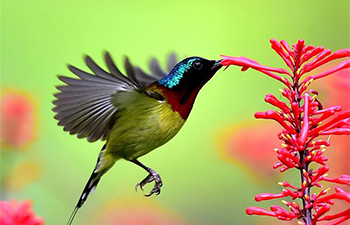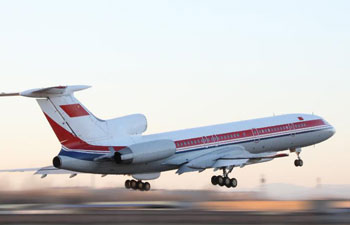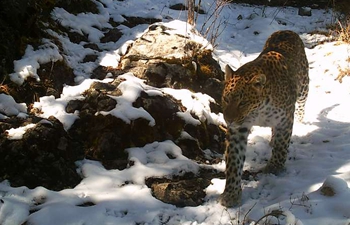
Workers make cotton quilts and beddings in Kathmandu, Nepal, on Dec. 13, 2017. (Xinhua/Sunil Sharma)
KATHMANDU, Dec. 13 (Xinhua)-- As the vote counting of the first-past-the-post for the federal parliament and provincial assembly elections in Nepal came to an end on Wednesday, the Communist Party of Nepal-United Marxist Leninist (CPN-UML) has emerged as the largest party of the Himalayan nation, the Election Commission said.
The CPN-UML, the largest communist party in Nepal, was able to secure 80 out of the total 165 seats under the first-past-the-post category of the federal parliament, according to the election body.
Meanwhile, the party has garnered 166 out of 330 seats in provincial assembly polls.
The CPN (Maoist Centre) led by Pushpa Kamal Dahal has become the second largest party by winning 36 seats in federal parliament and 73 seats in provincial assembly under the first-past-the-post category.
According to the Election Commission, the Nepali Congress party has managed to win 23 seats in federal parliament and 45 seats in provincial assemblies under the first-past-the-post category.
The Nepali Congress, which was the largest party in the last election, has become the third largest party this time.
Though the Election Commission announced the final outcomes of the federal and provincial assembly elections on Wednesday, vote counting for the proportionate representation category is still underway.
Navaraj Dhakal, a spokesman for the Nepal's Election Commission, told Xinhua on Wednesday that the vote counting for the proportionate representation category is also coming to an end and they will make it public soon.
The CPN-UML has taken a clear lead in the proportionate representation category as well, according to the results made public so far.
Nepal held the two-phased state and federal elections last week under the milestone new constitution promulgated in 2015.
The second phase of the parliamentary and provincial assembly elections was held on Dec. 7 while first phase was held on Nov 26. These historical elections are seen as a crucial step to implement the new constitution which encountered strong protests from some Madhesi ethnic groups in Nepal's Terai region bordering India.
After a hiatus of 20 years, local elections were held earlier this year choosing local bodies across the country.





